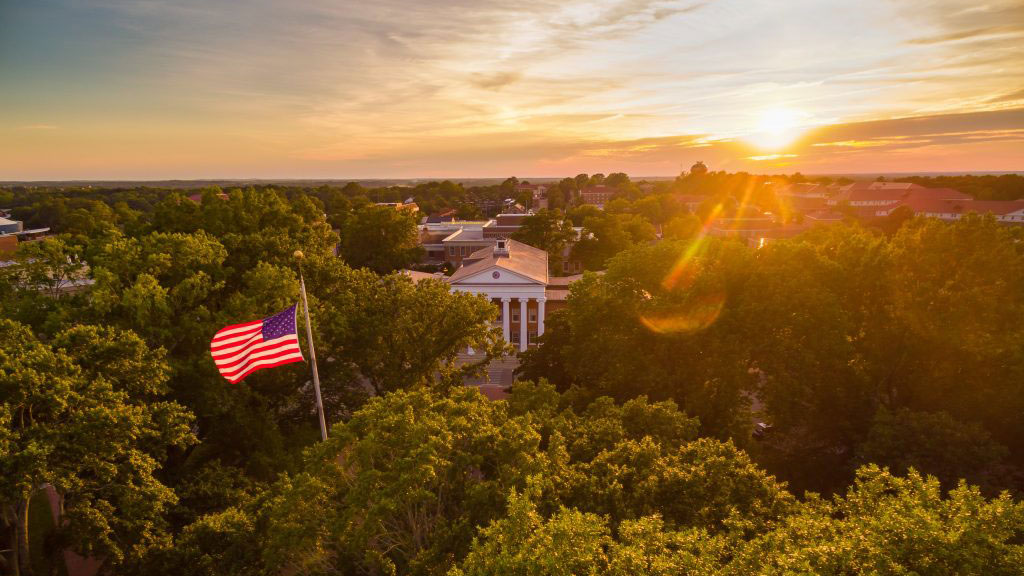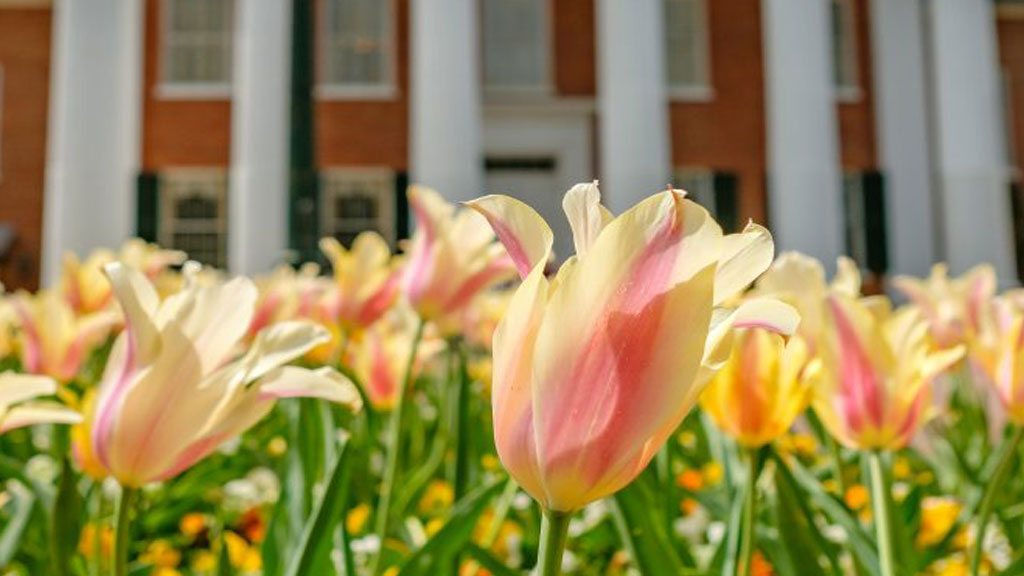Rosa Salas Gonzalez creates functional, authentic ceramics for senior thesis
Rosa Salas Gonzalez’s ceramics are functional works of art that also symbolize who she is, where she came from and what she has learned at the University of Mississippi.
Salas is graduating magna cum laude with a B.F.A. in art. She has been inducted into Phi Kappa Phi, named an Honors Scholar in Art and accepted into the Mississippi Teacher Corps program.
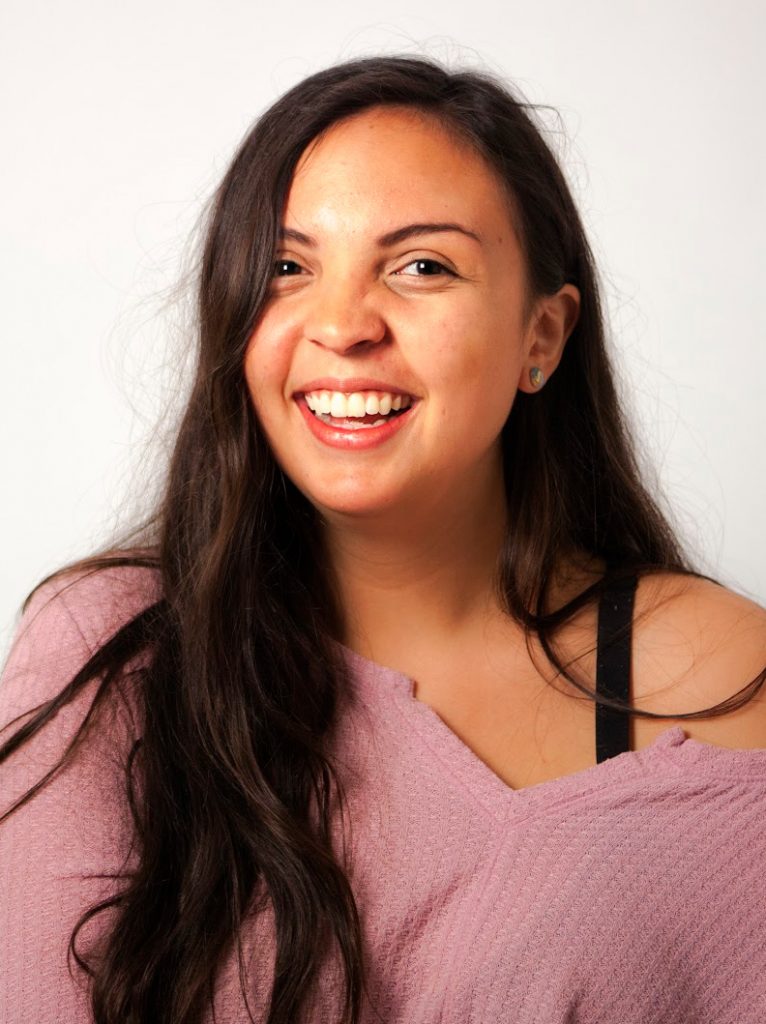
She just completed her senior art project, titled “Sobremesa: The Time Spent Savoring Food and Friendship,” which comprises five different ceramic sets for sushi, coffee, cocoa, sake and charcuterie. She also wrote an accompanying thesis in partial fulfillment of her requirements for the Sally McDonnell Barksdale Honors College.
Salas, a native of Maracaibo, Venezuela, said her ceramic sets are meant to enhance the experience of sharing meals together.
“There’s this thing we say in Latin American communities, ‘sobremesa,'” she said. “It’s pretty much the time you spend with your friends and family chatting and catching up after you eat. It’s not the action of eating. It’s that moment you share with people.”
In her thesis, Salas said the colors she used in the ceramics are derived from children’s books, toys and memories of her youth in Venezuela, and she was inspired by the “polychromatic houses in El Saladillo, the beautiful woven hammocks known as ‘chinchorros,’ where I would swing as a kid, or the indigenous Wayuu dresses known as ‘manta guajira.'”
Her ceramics professor and thesis adviser, Matt Long, encouraged her to research historical ceramics, so her work is influenced by Teotihuacan, Mayan and Mimbres pottery.
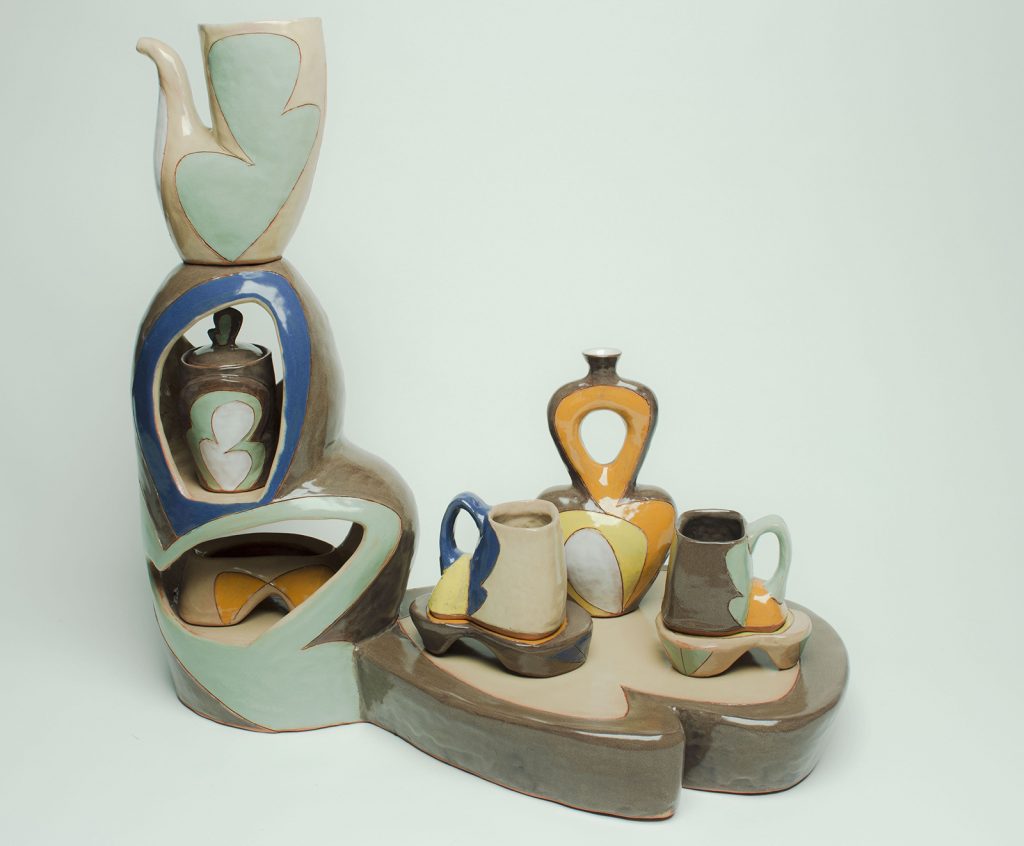
Cocoa set, red earthenware, cone 04, hand-built. 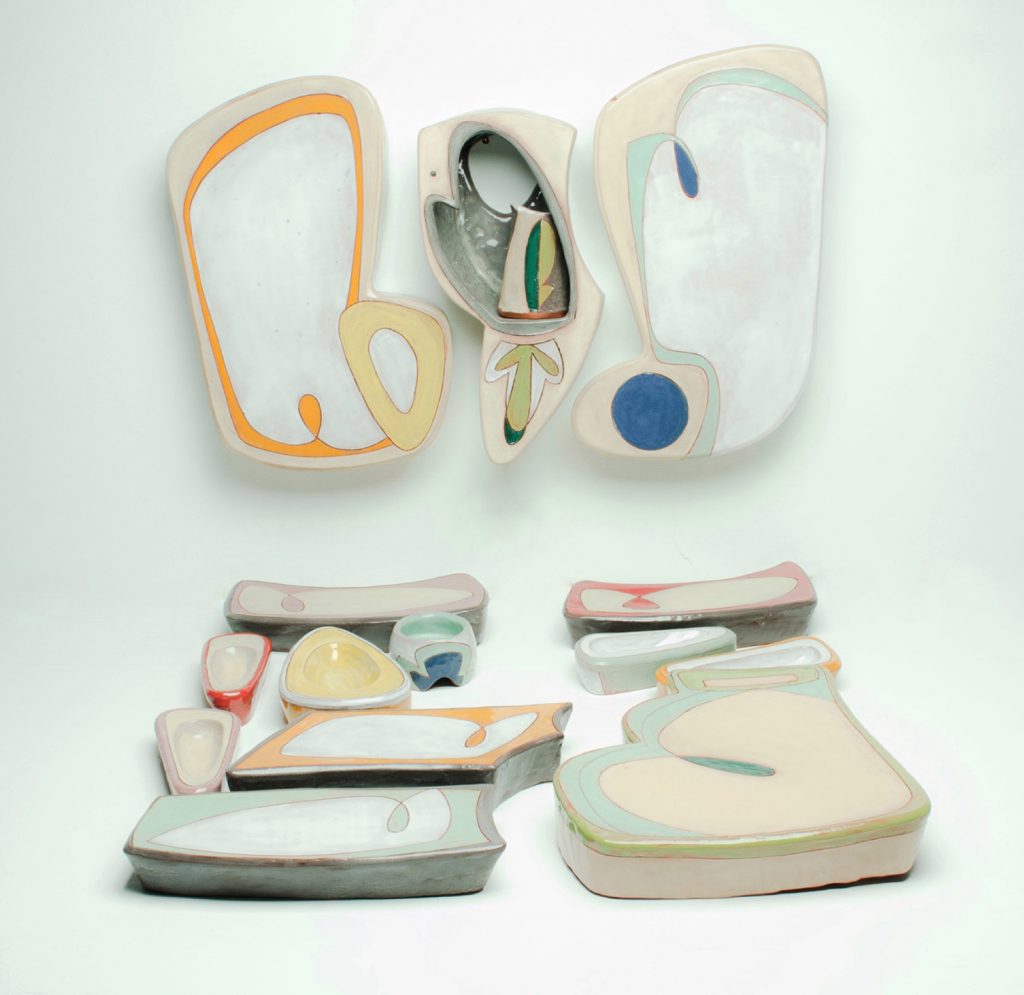
Sushi set, red earthenware, cone 04, hand-built. 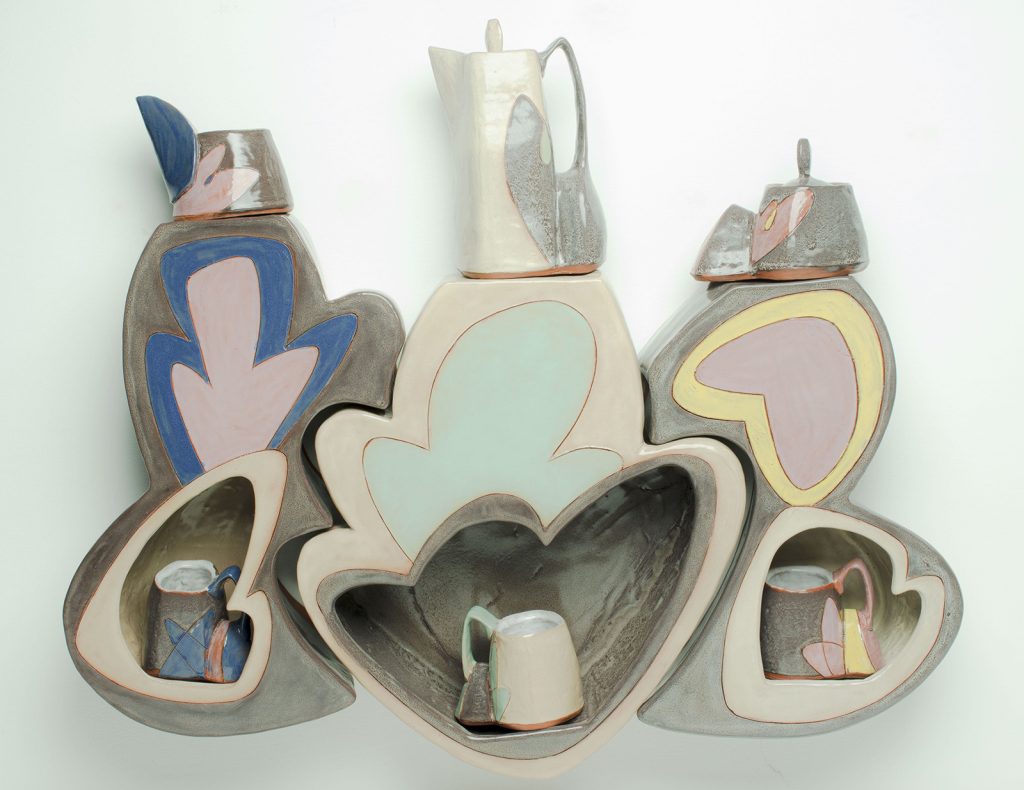
Coffee Pot and Mugs. Red earthenware, cone 04, hand-built.
“One of the greatest aspects of Rosa’s work is that it is authentic,” Long said. “This is a reflection of who she really is, energetic and powerful with a childlike type of enthusiasm that simply catches your attention.
“So, too, the work catches your eye: bright colors and gestural lines that contain the energy of their maker, all transforming your thoughts and ideas of how form and composition can be so engaging in a ceramic object that is presented on the wall.”
So why did Salas come from Maracaibo, “a bright tropical place, a culture of vibrant color and laughter,” to study at Ole Miss? She said she planned to go to a university in the U.S. but decided on Ole Miss because a friend had studied there.
Oxford is hot in the summer, but Maracaibo, somewhat close the equator, is hot year-round. The average annual temperature is 84 degrees. It’s the second-largest city in Venezuela – population: nearly 1.5 million – so, of course, Salas said, “I think it’s so cute,” when referring to Oxford.
While Salas knew English when she arrived at Ole Miss, she said she had to get used to the different accents and slang, and it took her a while to learn how to socialize on campus.
“There was an adjustment period, for sure, where I didn’t feel super comfortable,” Salas said. “I didn’t want to talk at the beginning. I would speak if I had to.
“So, at some point I stopped caring, and when that happened, I started talking to everybody.”
She said people in Oxford have been very hospitable and always invited her to their homes for holidays.
“It’s just really nice to have people who care about you, and I feel like that’s what I’ve found in Oxford.”
Salas began doing ceramics her sophomore year. She had never taken a ceramics class before, but friends showed her bowls and mugs they’d made in class, which roused her interest.
“At the beginning, it was, ‘I just like making pots! Wow, that’s purple,'” Salas said. “Then after a while, you start realizing that things are a little deeper than that. And I think that’s the difference between doing this for fun and then really paying attention to what you’re doing.”
The few Ole Miss students who specialize in ceramics are a close-knit group. Sometimes they get together at Long’s house to fire their pottery in his wood kiln. On certain occasions, such as a final critique, birthday or visiting artist, Long invites his students over for potluck.
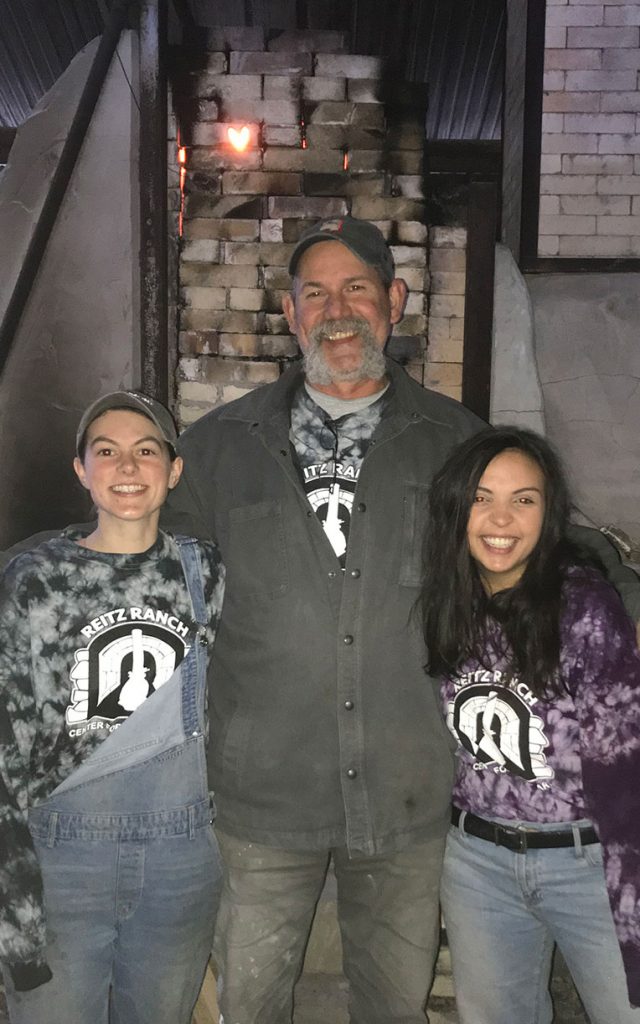
“He’s a very encouraging professor, especially on my thesis because he cares about everything I care about it,” Salas said about Long. “He’s super big on, ‘We’ve got to eat good.’ He definitely wants to make our experience as undergraduates cool. We’ve all grown really close to each other.”
Ceramics students also fire their pottery in kilns at Meek Hall. Meek houses five gas kilns – which include a small kiln for testing, a salt kiln and a soda kiln – and seven electric kilns, all producing different effects.
“You have no idea how different they can look from different kilns,” she said. “It forced me to learn how things react when you introduce them to different atmospheres. You can learn a lot from ceramics if you’re a science person.”
Salas joined the Honors College in her junior year. During her time on campus, she also did an internship at the UM Museum and has been involved in RebelTHON, the Big Event and Mud Daubers. She was a counselor for the Summer College for High School Students her sophomore year, a member of the Student Activities Association and Freshmen Council, and an ambassador for the College of Liberal Arts.
Of all her achievements, her ceramic sets are a testament to her maturity as an artist and journey from freshman to Ole Miss graduate.
“I am very proud to have been a part of Rosa’s education here at Ole Miss, but it is important to understand that the real reason that her work is where it is professionally is that she took a chance, a leap of faith that she could do this; the risk was all on her,” Long said. “She put herself in the situation that only she could remedy, and that is a very scary place to be!
“Most will never venture there in the first place, as this makes you vulnerable to the outside world. However, it is this vulnerability that makes the work authentic. Without it, the work would be void of who Rosa really is, and that is where the risk of failure and success collide.
“As you can see in the exhibition, success was attained.”
To see samples of Salas’ art, go to https://rosasalasart.wixsite.com/website/selected-work.
By Benita Whitehorn/University Marketing & Communications

